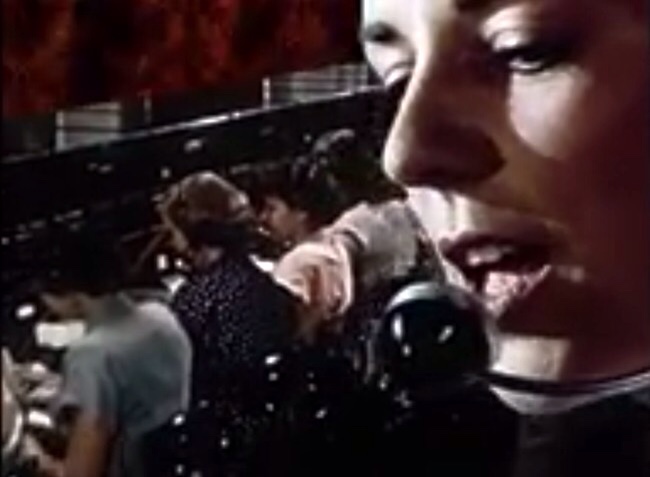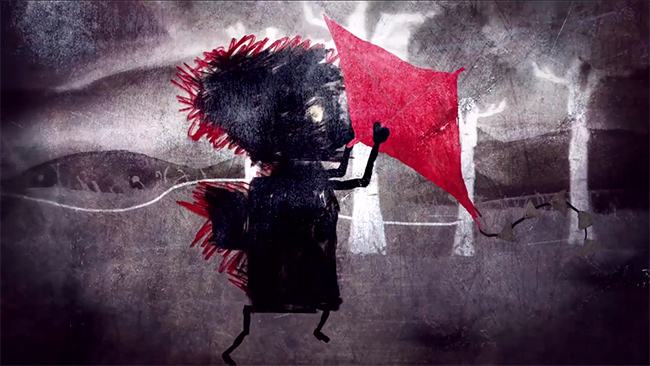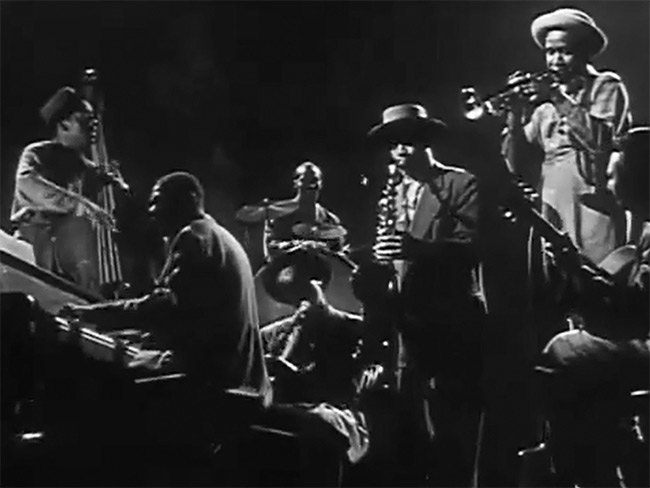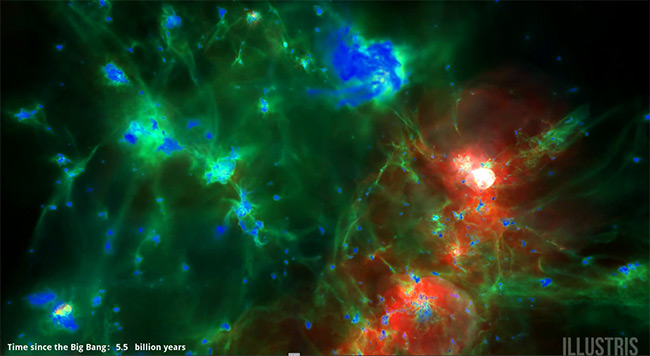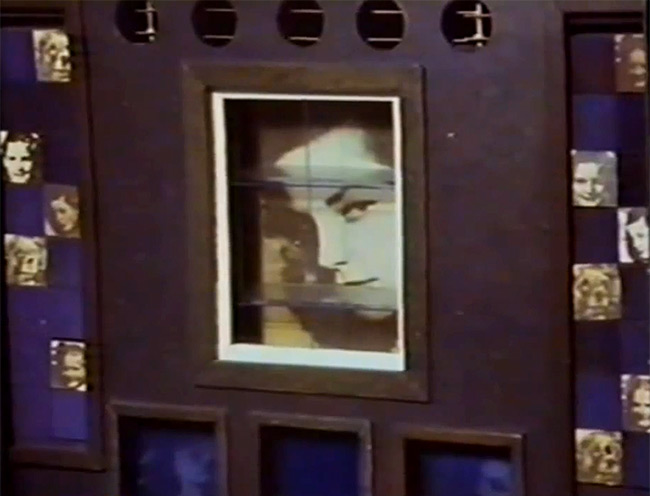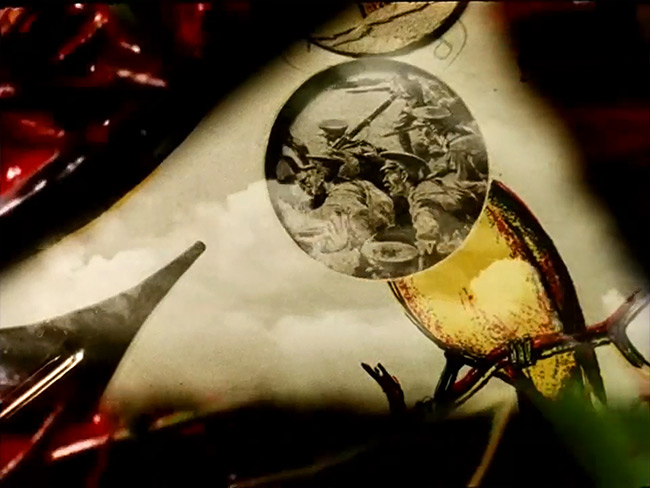
This is a brilliant animation from Janie Geiser who is a renowned theater and film artist specializing in the use of inanimate objects and toys to create unsettling and evocative films and performances. Her work has been screened worldwide, including at the Whitney, Guggenheim, Museum of Modern Art, and the Los Angeles County Museum of Art. The film investigates the origins of the word ‘algebra,’ which turn out to be somewhat interesting. Frankly, I had never once even considered the word before watching this film.
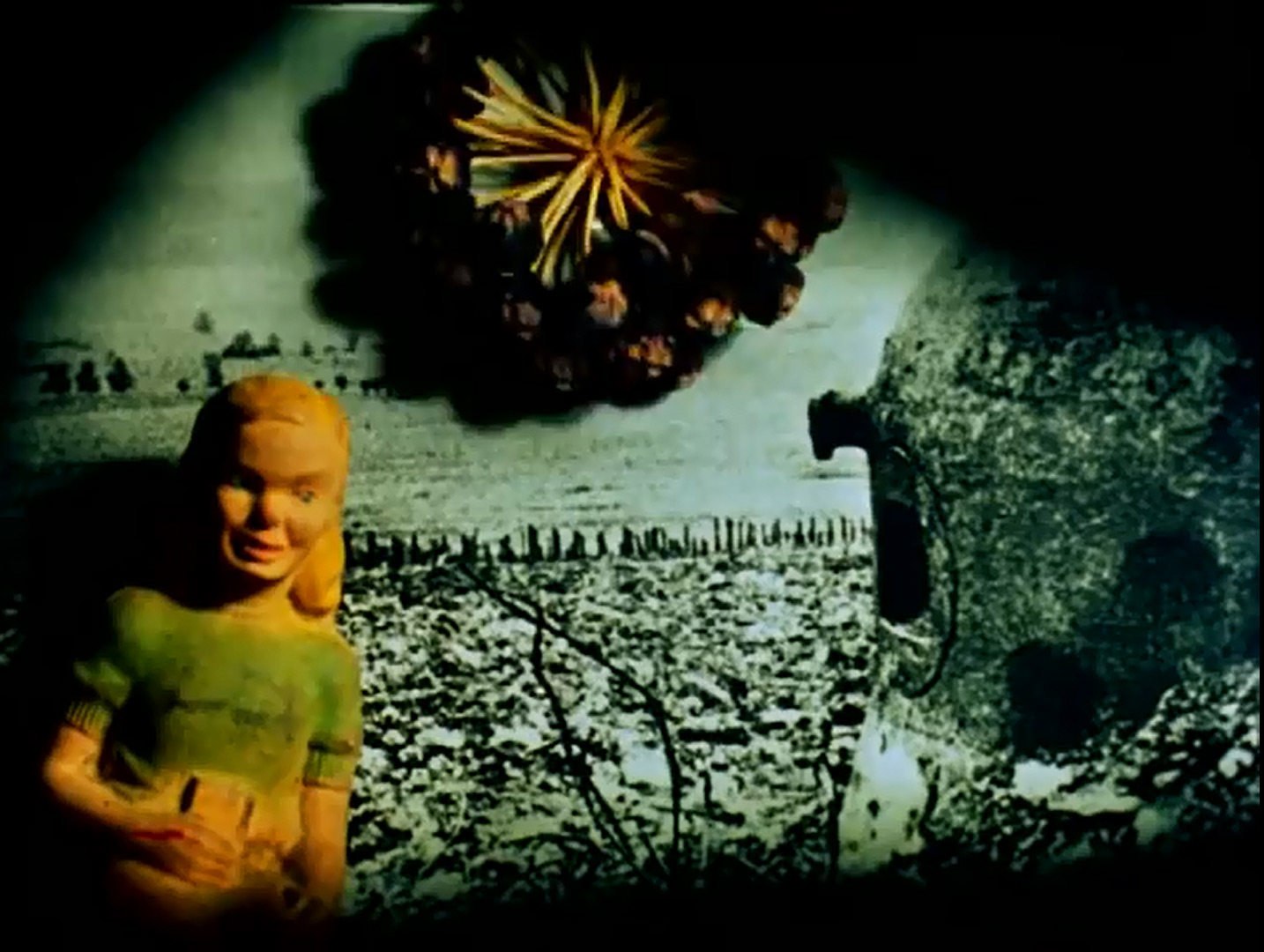
It’s a subtle film. A beautiful but difficult film. Let’s think about this experimental film, shall we? What do we see in this film? Holes. Lots of them. Holes for looking through. There’s a little plastic doll who looks very 1940s, some birds, numerals, trees, and lots of grass. Blades of grass. When I see a little plastic girl doll looking into holes I see a filmmaker looking into a camera to investigate the world, or rather the mind, or perhaps the unconscious. This doll approaches an odd stone bunker on a hill and she peers into a small opening into darkness. It looks a bit like an old Nazi gun bunker. Carl Jung would approve! All experimental films should dig into the unconscious mind, I think. People throw ‘dreamlike’ around quite often these days when talking about films. There are very few dreamlike films. What most people mean by dreamlike is simply blurry. Anyway, our plastic doll sees things in storybook fashion that suggest nature and Nazis. There’s warfare going on. The precision of battle maps. The doll’s vision puts conflicting images of tamed nature description together with extreme violence. Nothing is attached properly to anything. Ideas do not lead to logical conclusions. Instead, they lead to odd constructions, more like what is required by the creative mind.
Geiser’s ‘algebra’ theme seems to peek through at times in images of severed limbs or broken bones, teeth, spilled blood, and of course the various number machines that pop up. The word algebra apparently used to have a meaning related to restoration or reunion, sometimes applying to the setting of broken bones which was often done in medieval times by a dentist who also performed bloodlettings. Interesting. But this film is not really about mathematics. At least not the usual kind. It’s about piecing together a vision of the world. Immersion.
